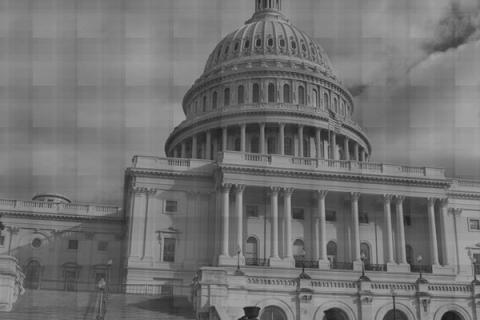California started a new fiscal year last week with no budget, something which happens with alarming regularity. Sacramento legislators faced with a choice between staying there and collecting a per diem with nothing to vote on or hightailing it home for July, opted for the extended vacation.
While I suppose it’s praiseworthy they didn’t just hang around collecting money, wouldn’t a third and better option have been to stay there negotiating until a budget deal is reached?
For one thing, a deal would mean state workers won’t be paid $7.25 an hour as Schwarzenegger has ordered, even if the state controller says he won’t comply. Oh wait, you’re probably wondering, well, why don’t legislators just stay in Sacramento, negotiate a budget, and not collect the per diem. Political consultant Leo McElroy weighed in on that, saying “That one was a non-starter. Someone said that has about the same odds as William Shatner winning the Academy Award as best actor.” (Our sympathy goes out to Mr. Shatner for being compared to the California legislature)
Seriously though, the California Constitution says a budget must be passed on time. Yet, the legislature ignores this like it is inconsequential and instead goes on vacation. There is a decided air of unreality emanating from Sacramento as they delay and squabble about the budget. And if the governor has his way, how will those state workers temporarily getting $7.25 an hour be able to pay their bills?
There are three competing plans: Gov. Schwarzenegger’s and one each from Democratic caucuses in the House and Assembly. All of them assume the federal government will grant $3.4 billion in assistance, even though this is hardly a given. That’s what I mean by unreality.
They also want to slash prison spending, both for corrections officers and prison health care, as well as boost spending for education. The Democrats want to keep the social welfare programs that Schwarzenegger wants to cut or eliminate, as well as raise some taxes and eliminate reductions in other taxes.
The California Budget Project has a detailed comparison (PDF) of the three plans. Schwarzenegger’s plan would produce a balanced budget even as he acknowledges it contains “very terrible cuts.” The Assembly plan would be balanced, but only after borrowing $8.7 billion against 20 years of future expected Beverage Container Recycling Fund fees, then using that to repay bonds Wall Street will cheerfully package and sell now. Does this sound goofy and risky to you too? The Senate plan would have a $2.1 billion deficit. All these plans assume that revenue and expenses stay as predicted. But lately, such predictions have often been excessively optimistic.
As you might expect, the Democratic plans basically call for increased taxes and few social welfare cuts, and will be vigorously opposed by Republicans. California is the only state with a “double supermajority” requirement. Both budgets and taxes must pass by a two-thirds majority. This obviously hampers the ability to get such bills passed and means a determined minority can block almost anything.
If the Schwarzenegger budget passes, hundreds of thousands of elderly, infirm, and children currently receiving aid will get much less and maybe nothing. Safety nets that used to exist will be gone. Entire state departments will be eliminated. If either of the Democratic plans passes, the future will be mortgaged to pay today’s bills.
At some point, California will have to start paying down its debt. The question is, when?

